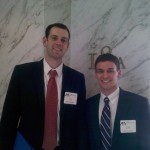Usufructuary Rights and the Chippewa
I am only kidding when I tell my Property students that using the word “usufruct” on their finals will yield extra credit, but I am in fact intrigued by the venerable notion of usufructuary rights. The holders of usufructuary rights may use and enjoy real property that is vested in another as long as they do not use up that property or do harm to it.
The potential assertion of usufructuary rights has surfaced recently in conjunction with Governor Walker’s efforts to prompt iron ore mining along the northern rim of Wisconsin and to create sales opportunities for manufacturers of mining equipment. Native Americans and particularly several bands of Chippewa (formally recognized branches of the Ojibwe people) have opposed the development of the mines because mining waste contains sulfides that pollute wetlands, streams, and groundwater. And, as it turns out, the Chippewa have usufructuary rights related to the lands where the projected mines will be located!

